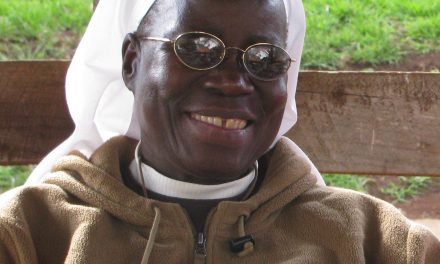A year after Theodore McCarrick was named a cardinal, the Washington Post ran a story (“Uniform Policy on Priests’ Abuse Urged; More Comprehensive Way Is Needed, D.C.’s Cardinal McCarrick Says,” 4/17/2002, A01) in which the following is revealed:
[McCarrick] also revealed that he personally had once faced an unfounded accusation. More than 10 years ago, while he was bishop of Newark, McCarrick said, he was accused of pedophilia “with my own family” in a letter sent to some of his peers in the church hierarchy.
“I immediately did two things,” he said. “I wrote a response and sent it to the nuncio [the pope’s representative in the United States] because I figure everything’s gotta be clear. And then I brought it to my Presbyter Council, the council of priests in the diocese. I said, “This is what I got. I want you to know it.” Because I think light is what kills these things. You gotta put them in light. And then nothing ever happened. He never wrote another letter or anything.”
McCarrick’s spokeswoman, Susan Gibbs, said later that the unsigned letter implied that he had sexually abused his nieces and nephews but it had “no specific allegations, no names, no nothing… just rumor.”
After telling this story, the cardinal added, “If there’s any interest with anyone here, I can say I’m 71 years old and I have never had sexual relations with anybody–man, woman, or child. And that can go on the record.”
Less than two weeks later, the paper ran a story entitled “Vatican’s Man of the Hour; McCarrick Improves Scandal-Tarnished Image of Church” (4/28/2002, A01). Saying that Cardinals Law and Egan were “embroiled in the sexual abuse scandal,” McCarrick was described as a contrast: “McCarrick does not question papal doctrine. He is a staunch defender of celibacy and the male-only priesthood. He is effusive in his praise of the pope. And he has not been tainted by the scandal.”
Not yet, anyways. Fast forward sixteen years and the New York Times headline this time reads “Cardinal Theodore McCarrick Resigns Amid Sexual Abuse Scandal” (7/28/18). Pope Francis has apparently ordered him to a life of prayer and penance. McCarrick maintains his shock and believes he is innocent, according to the statement published on the Archdiocese of Washington website on June 20, 2018.
And the flood gates have opened. “James” says that McCarrick was a close family friend and began to abuse him in 1969, when he was 11 years old, and that the abuse lasted nearly two decades. Dr. A.W.Richard Sipe reported, before his recent death, that he had interviewed 12 seminarians and priests who attest to propositions, harassment, or sex with McCarrick, who told them on weekend trips that he did not like to sleep alone. Whether at the fishing camp or the beach house, “Uncle Ted” would take his “nephews” to bed with him, according to a survivor who has come forward publicly in this New York Times piece.
Which takes me back to 2002. When McCarrick publicly stated that he was accused of sexual assault “with his own family” was it one of these “nephews” courageously coming forward? Was his letter to the nuncio and his communication with the priests’ council really an attempt to silence, shame, and bully seminarians and priests in his own diocese, to prove that no matter what allegations came forward, he knew the way the system worked and he would ensure that the system would work in his favor? He said ‘light is what kills these things.’ Did he want to kill a story that accused him because it was true? Those “Uncle’s Day” barbeques he used to host on his birthday (Washington Post, 4/19/2005) now have a different ring.
To “Uncle Ted’s” so-called “nephews”: Thank you for coming forward. Thank you for sharing your truth. I can only imagine the trauma you have endured as he was the darling of the news media, promoted to higher ranks within the church, and nothing happened to your reports. I hope that you can find healing and support. I am ashamed to be part of a church culture that has tolerated abuse of power and I commit to learning more about how I can be a better ally and advocate for survivors.



